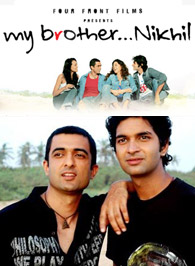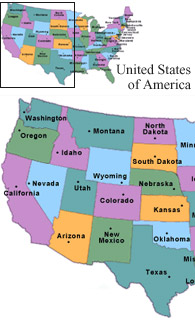India debates legalising gay sex
The Naz Foundation, an NGO, has filed a petition with the Supreme Court challenging the constitutional validity of Section 377 of the Indian Penal Code (IPC), which makes all types of 'unnatural' sex, including homosexuality, a punishable offence.
The petition was filed by Naz Foundation challenging the Delhi high court judgment, which had dismissed the NGO's plea, saying a petition cannot be filed just for testing the validity of a legislation.
The Supreme Court (SC) last Friday issued notice to the Centre and the Delhi government on a petition questioning the validity of the law that punishes homosexuality. The SC has also sought replies in four weeks from the National Aids Control Organisation, Delhi State Aids Control Society and the Delhi police commissioner on what the Times of India calls a "controversial issue."
The NGO had also alleged that police use the threat of law to harass homosexuals and had sought to restrain law-enforcing agencies from enforcing Section 377 of the IPC.
The Indian government has said previously that homosexuality cannot be legalised in the country, because "Indian society by and large disapproves of homosexuality and the disapproval; is strong enough to justify it being treated as a criminal offence even where adults indulge it in private".

Meanwhile, cinema audiences found their sensibilities tested when a low-budget drama opened in movie theaters across the country late last month. My Brother Nikhil, which tells the story of a gay man's struggle with his family and his country after contracting the virus that causes AIDS, is said to be testing the limits of the average Indian cinemagoer's sensibility.
The movie is said to be part of a new breed of Bollywood pictures known here as the "multiplex movie" which appeals to an urban middle-class audience, and is contains a smaller does of song-and-dance numbers and potboiler story lines usually associated with typical Bollywood cinema.
POST/READ COMMENTS
Aussie tourist jailed over gay sex in Fiji
An Australian tourist has been sentenced to two years jail for what a Fiji judge called a "shameful" and "disgusting" homosexual act.
The Fiji Times reported that retired university lecturer Thomas Maxwell McCoskar, 55, and a Fijian man had pleaded guilty to having sex in the city of Nadi over the Easter period and asked the court for leniency.
In sentencing the pair on Tuesday, Magistrate Syed Muhktar Shah said the crimes committed by McCoskar, from Victoria, and Dhirendra Nandan, 23, were "something so disgusting that it would make any person vomit."
Despite the Fijian being 23, the judge said McCoskar's actions bordered on pedophilia.
"If you wanted to have fun, you should have stayed in Australia instead of trying to come to Fiji and exploit our young boys," he said.
The newspaper reported that the pair told the court there was nothing wrong with what they did and Nandan threatened to commit suicide if jailed. Shah told Nandan he should have thought of the "shamefulness of the crime" before associating with McCoskar.
Gay sex is illegal in predominantly Christian Fiji, and carries a jail sentence of up to 14 years.
Kansas passes anti-gay marriage amendment
Kansas has become the 18th US state to approve a constitutional amendment banning same-sex couples from marrying or entering into civil unions.

Although same-sex marriage is already banned under Kansas law and is not being challenged, supporters of the ballot measure said the ban must be in the Kansas Constitution as a precautionary measure.
Kansas became the 18th state with such a prohibition in its constitution while Alabama, South Dakota and Tennessee plan elections next year on constitutional bans. Mean while, Connecticut's Senate was prepared to vote Wednesday on a bill that would allow same-sex couples to enter into civil unions. The bill has broad support in both Democratic-controlled chambers of the Legislature.
POST/READ COMMENTS
Court upholds California's Gay Partnership Law
An appeals court on Monday rejected a challenge to a California law that gives same-sex domestic partners many of the same rights as married couples.
Conservative groups including the Alliance Defense Fund argued that a state measure on domestic partnership that became law in January was unconstitutional and based on a proposition approved by California voters in 2000 that defined marriage as a union between a man and a woman.
While gay rights groups welcomed the domestic partnership law, they say it falls short of providing the same rights as married couples, and are advocating same-sex marriage rights.
Last month, a San Francisco judge issued a preliminary ruling saying California's ban on homosexual marriage is unconstitutional. Experts however expect years of legal battles over gay marriage and related issues.
POST/READ COMMENTS
Anti-discrimination bill advance in Hawaii
State senators passed two bills on Monday that would prohibit Hawaii's employers and landlords from discriminating against gays, lesbians or transsexuals.
One bill prohibits discrimination based on a person's sexual orientation or gender identity during any real estate transaction while another would update Hawaii's current law banning discrimination by employers based on sex and gender stereotypes to include gender identity.
Earlier versions of Hawaii's two bills already passed the House, which would now need to work with the Senate to decide on a single version of each bill. Once approved, the bills' next stop would be Gov. Linda Lingle's desk. She has in the past said she supports anything that reduces discrimination, and is expected to support the bills, according to her spokesman.
